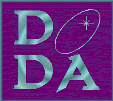You are here
Meeting Organizer Handbook: Conducting the Meeting
Getting a Meeting Under Way
As participants arrive, they should be greeted, registered, and provided with the information and materials needed to take part in the meeting. Everyone should be informed in advance of the time and place where these preliminary activities will take place. Possibilities include the hotel lobby, if most participants are staying in just one hotel; the meeting room itself; or at an opening reception.
Registration may be held the night before the meeting begins (e.g., at the opening reception) and/or in the morning before the first session. All fees not yet paid should be collected at this time. Everyone will need:
- signed receipt
- meeting program
- name tag
In addition to the basics, it's nice to give participants whatever information they need to get the most out of the meeting and their trip. This might include:
- maps showing local restaurants and places of interest
- time tables and route maps for public transportation>
- notices and schedules of local special events
– concerts
– festivals
– sporting events - full details of meeting-related activities
– luncheons
– splinter meetings
– evening entertainment
– day trips and tours - complete list of meeting participants, with addresses, phone numbers, e-mail addresses
If the collection of notices, maps, and schedules turns into a sizeable heap, it would be helpful to prepare packets of information, pre-stuffed in big envelopes, to be picked up at registration.
During the Meeting
The local organizing committee should make sure the meeting room is fully equipped with:
- A/V equipment
- timer
- pointers
- table for speakers' supplies
- poster space and necessary supplies
- more than enough seating
- drinking water and cups in the meeting room
If needed, a projectionist should be designated, and Session Chairs must be selected — if this wasn't done in advance. Speakers must be given very clear instructions on the length of time they have for speaking and for answering questions.
In addition, it's helpful to have a message and announcement board, with a phone number or e-mail address given out in advance to allow participants to be contacted during the meeting. If possible, access to e-mail is very helpful!
As the Dust Settles...
When the meeting has run its course, the following actions will tie up any loose ends:
- the local organizing committee should make a careful tally of all costs and revenue, and provide the DDA treasurer with a complete accounting.
- records of the meeting, such as the number of participants and papers presented, should be given to the DDA secretary.
- a final chat with the hotel/facility manager should establish that all meeting business has been completed satisfactorily.
- someone, either on the program or local organizing committees, could write a brief report on the meeting for the AAS newsletter.
